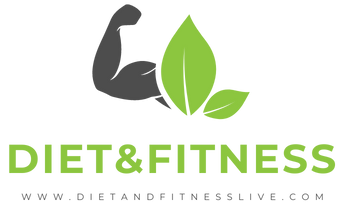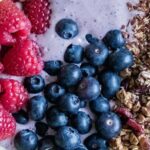
- Vegetarian Diet: A Guide to Healthy Eating and Fitness
- What is a vegetarian diet?
- Benefits of a vegetarian diet
- Tips for healthy eating on a vegetarian diet
- Fitness advice for vegetarians
- Common misconceptions about a vegetarian diet
- Meal planning for vegetarians
Vegetarian Diet: A Guide to Healthy Eating and Fitness
Are you considering switching to a vegetarian diet? Or perhaps you are already a vegetarian looking for ways to improve your health and fitness? Either way, you’ve come to the right place. In this article, we will explore the benefits of a vegetarian diet, provide tips for healthy eating, and share some fitness advice for vegetarians.
What is a vegetarian diet?
A vegetarian diet consists of plant-based foods such as fruits, vegetables, grains, legumes, and nuts. Vegetarians typically avoid meat, poultry, and fish, but some may include dairy products and eggs in their diet. There are different types of vegetarians, including lacto-ovo vegetarians, lacto vegetarians, ovo vegetarians, and vegans.
Benefits of a vegetarian diet
Studies have shown that a vegetarian diet can provide numerous health benefits, such as lower risk of heart disease, diabetes, and some types of cancer. Vegetarians also tend to have lower body mass index (BMI) and lower cholesterol levels. A vegetarian diet can also be more environmentally friendly since it requires fewer resources to produce plant-based foods compared to animal-based foods.
Tips for healthy eating on a vegetarian diet
To ensure that you are getting all the necessary nutrients on a vegetarian diet, it is important to eat a variety of foods. Include plenty of fruits and vegetables, whole grains, legumes, and nuts in your diet. Make sure to get enough protein by incorporating plant-based sources such as tofu, tempeh, and legumes. Consider taking a vitamin B12 supplement since this nutrient is primarily found in animal-based foods.
Fitness advice for vegetarians
Vegetarians can still achieve their fitness goals by consuming enough protein and incorporating strength training exercises into their workout routine. Plant-based protein sources such as tofu, tempeh, and legumes can provide enough protein for muscle growth and repair. Incorporating resistance training exercises such as weightlifting, bodyweight exercises, and yoga can also help build and maintain muscle mass.
Common misconceptions about a vegetarian diet
There are several misconceptions about a vegetarian diet, such as the belief that vegetarians don’t get enough protein or that a vegetarian diet is expensive. However, as mentioned earlier, vegetarians can get enough protein by consuming plant-based sources. Additionally, a vegetarian diet can be affordable by choosing seasonal produce and buying in bulk.
Meal planning for vegetarians
Meal planning can be helpful for vegetarians to ensure that they are getting all the necessary nutrients. Plan meals that include a variety of foods, including fruits, vegetables, grains, legumes, and nuts. Consider prepping meals in advance to save time during the week. Websites and apps such as Mealime and Yummly can provide vegetarian meal ideas and recipes.
In conclusion, a vegetarian diet can provide numerous health benefits and can be a great way to maintain a healthy lifestyle. By incorporating a variety of plant-based foods and incorporating strength training exercises into your fitness routine, you can achieve your fitness goals while following a vegetarian diet. With these tips and advice, you can make the most out of your vegetarian lifestyle.






